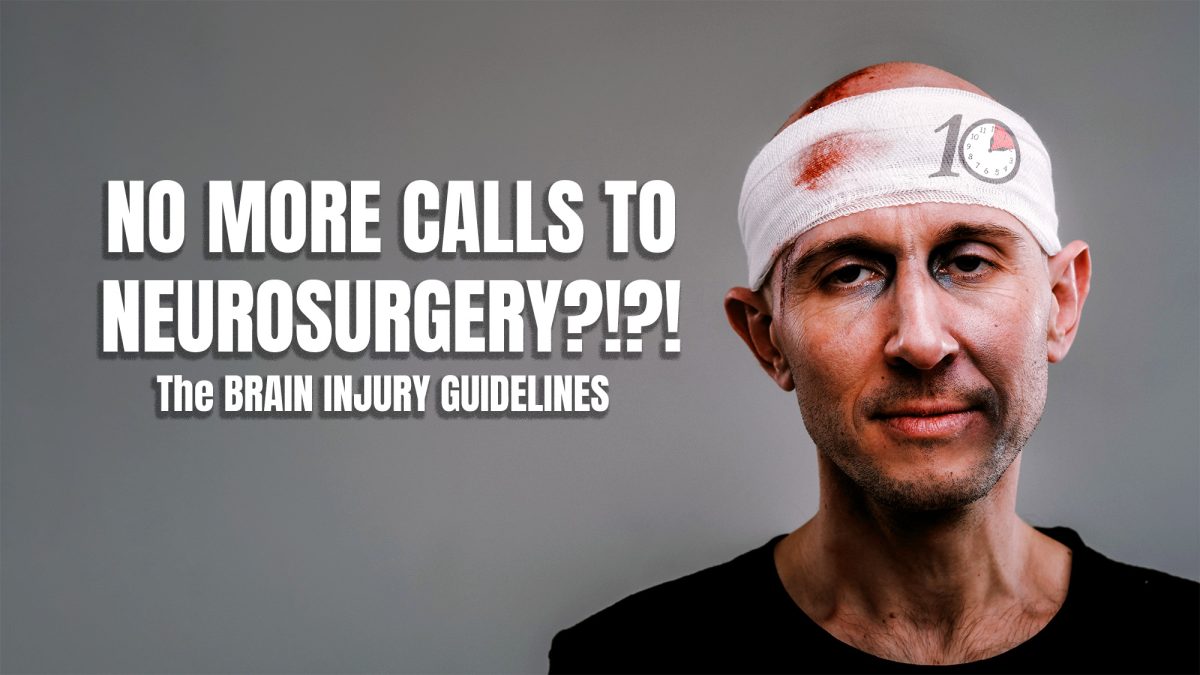I gave 2 talks at the North York General Emergency Medicine Update this year. These are the resources […]
ebm reviews Front Page
436 posts
Years ago, this started as the “articles of the month” and was truly a monthly undertaking. In order […]
Although it made a bit of a splash when published, this article really didn’t interest me. Obviously, GCS […]
As mentioned in my most recent review, publication bias has been a major concern when trying to decide […]
One of the biggest headaches in modern medicine is the apparent requirement to call busy specialists just to […]
Time for another edition of the ‘old article dump’. One of the downsides of subscribing to more than […]
Give your patients a break. Nobody is a perfect diagnostician. Not even the best trained physician can determine, […]






